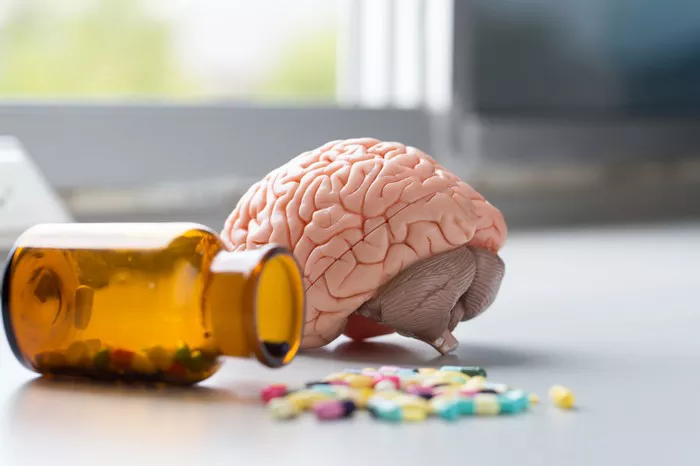Navigating the complex landscape of disability benefits can be daunting, especially for individuals suffering from mental disorders. Recognizing the mental disorders that qualify for disability is crucial for securing the necessary support and accommodations. This comprehensive article delves into various mental health conditions that are recognized under disability standards, the criteria used to evaluate them, and the process involved in obtaining disability benefits.
Mental Health and Disability
Mental health disorders can be as incapacitating as physical illnesses, yet they often lack the visible symptoms that help validate the struggles of those affected. In many regions, including the United States under the Social Security Administration (SSA) and other global standards, certain mental disorders can qualify a person for disability benefits, acknowledging the significant impact these conditions can have on an individual’s ability to work and perform daily activities.
Qualifying Criteria for Disability Benefits
The eligibility for disability benefits due to a mental disorder involves stringent evaluations and documentation. The criteria typically include:
The Severity of the Condition: The disorder must significantly limit one’s ability to perform basic work activities.
Duration of the Condition: The disorder must have lasted or is expected to last for at least 12 months.
Medical Documentation: Comprehensive medical evidence from qualified professionals is required to support the diagnosis and severity of the condition.
Evidence Requirements
Adequate documentation and clinical evidence are paramount. This generally includes:
1. Clinical history and examination findings.
2. Relevant laboratory tests, if applicable.
3. Psychiatric evaluation reports.
4. Treatment records including responses to therapy.
Major Mental Disorders that Qualify for Disability
Several mental health conditions are recognized for disability benefits. The following sections explore these conditions in detail, outlining symptoms, challenges, and specific criteria used in the evaluation process.
Depressive, Bipolar, and Related Disorders
These disorders are characterized by significant disturbances in mood and behavior. Examples include major depressive disorder and bipolar disorder.
Key Symptoms and Challenges
1. Persistent sadness or irritable mood.
2. Feelings of worthlessness or excessive guilt.
3. Fluctuations between depressive and manic episodes (in the case of bipolar disorder).
Disability Evaluation Criteria
1. Severe limitation in activities of daily living.
2. Difficulties in maintaining social functioning.
3. Repeated episodes of decompensation, each of extended duration.
Schizophrenia Spectrum and Other Psychotic Disorders
This category includes schizophrenia, schizoaffective disorder, and other disorders with features of psychosis.
Key Symptoms and Challenges
1. Delusions or hallucinations.
2. Disorganized thinking.
3. Severely disorganized or catatonic behavior.
Disability Evaluation Criteria
1. Documentation of psychotic symptoms while on prescribed medications.
2. Observations of episodes of decompensation.
Anxiety and Obsessive-Compulsive Disorders
Conditions such as generalized anxiety disorder, panic disorder, and obsessive-compulsive disorder fall under this heading.
Key Symptoms and Challenges
1. Excessive worry or fear.
2. Compulsive behaviors that the person feels driven to perform.
3. Episodes of intense fear or panic attacks.
Disability Evaluation Criteria
1. Detailed records of the frequency and intensity of anxiety or panic attacks.
2. Description of avoidance behaviors and their impact on normal functioning.
Trauma- and Stressor-Related Disorders
These include post-traumatic stress disorder (PTSD) and acute stress disorder, among others.
Key Symptoms and Challenges
1. Intrusive symptoms associated with the traumatic event.
2. Persistent avoidance of stimuli associated with the trauma.
3. Marked alterations in arousal and reactivity.
Disability Evaluation Criteria
1. Evidence of exposure to a traumatic event.
2. Records of ongoing distress and functional limitations due to symptoms.
Neurocognitive Disorders
This category includes conditions like Alzheimer’s disease and other dementia-related disorders, which can also affect younger individuals in rare cases.
Key Symptoms and Challenges
1. Cognitive decline from a previous level of performance.
2. Impairment in cognitive functions such as memory, attention, and language.
Disability Evaluation Criteria
1. Standardized neuropsychological testing documenting decline.
2. Reports on how cognitive deficits impact daily living activities and independence.
Eating Disorders
Conditions such as anorexia nervosa, bulimia nervosa, and binge-eating disorder are also recognized.
Key Symptoms and Challenges
1. Extreme preoccupation with weight and food.
2. Severe restrictions on food intake or recurrent binge eating.
3. Body image distortion.
Disability Evaluation Criteria
1. Medical evidence detailing physical and mental health effects.
2. Impact on nutritional status and overall physical health.
Personality and Impulse-Control Disorders
These are less frequently recognized but can qualify based on their impact on functional abilities.
Key Symptoms and Challenges
1. Enduring patterns of behavior deviating markedly from the expectations of the individual’s culture.
2. Impulse control issues that lead to harmful behaviors.
Disability Evaluation Criteria
1. Evidence of pervasive and inflexible trait expression that impairs functioning.
2. Detailed accounts of repeated personal, social, or occupational issues.
Application Process for Disability Benefits
Securing disability benefits for mental disorders involves a detailed application process that includes:
Initial Application: Submission of detailed medical records and personal testimony about how the disorder affects work and daily life.
Review Process: A disability determination services (DDS) agency reviews the records to decide eligibility.
Appeals: If the initial claim is denied, there are multiple levels of appeal available.
Challenges in the Process
Applicants often face challenges such as proving the non-physical nature of their disability, frequent denials initially, and the need for extensive documentation. Patience and persistence, along with comprehensive medical evidence, are crucial.
Conclusion
Understanding the complexities of mental disorders that qualify for disability benefits is essential for individuals seeking support. Accurate diagnosis, detailed documentation, and a well-guided application process are fundamental to successfully navigating this challenging landscape. By gaining a clearer understanding of these aspects, individuals affected by significant mental health issues can better advocate for themselves and access the benefits needed to improve their quality of life.
[inline_related_posts title=”You Might Be Interested In” title_align=”left” style=”list” number=”6″ align=”none” ids=”8434,8430,8426″ by=”categories” orderby=”rand” order=”DESC” hide_thumb=”no” thumb_right=”no” views=”no” date=”yes” grid_columns=”2″ post_type=”” tax=””]
































